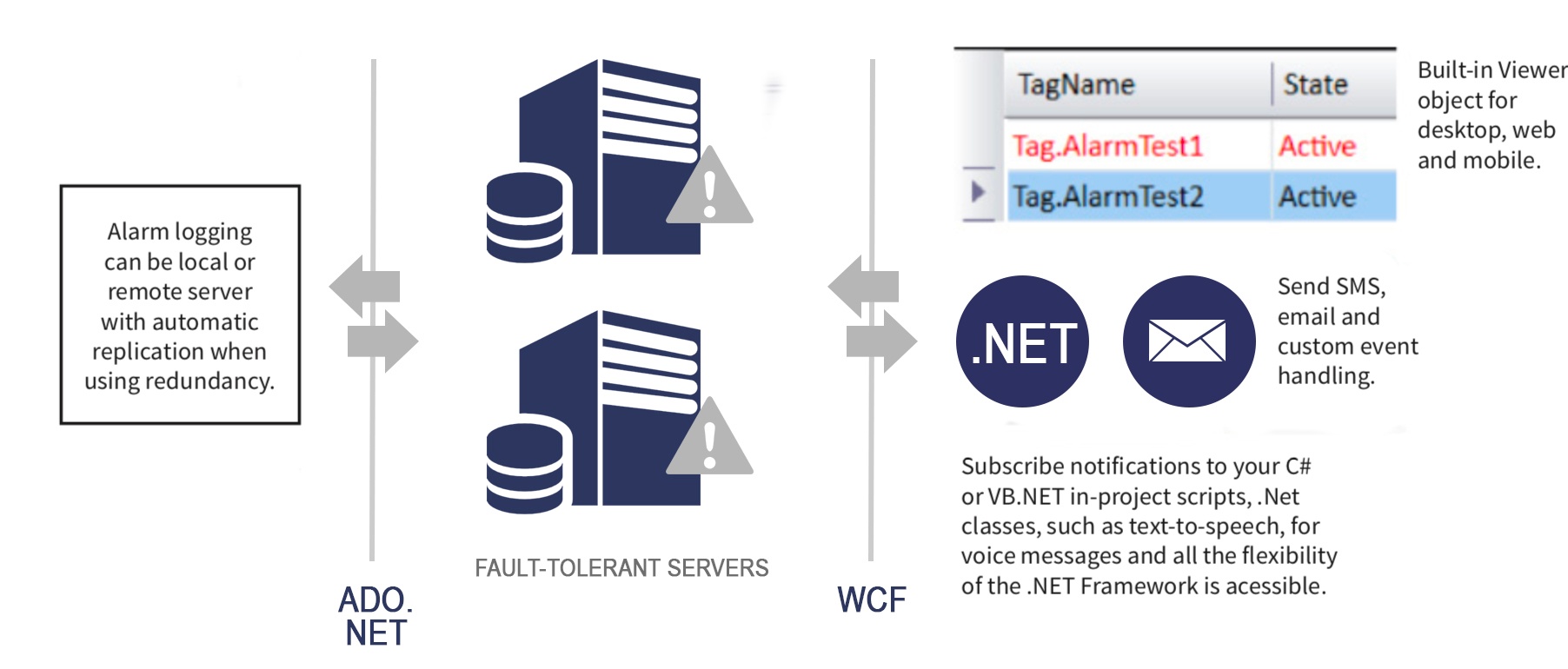Real-time Alarm Processing
The Alarm module was created on pure .NET managed code, with multi-threading and exception control, for maximum performance and reliability. Combining the Alarm, Dataset and Script Modules, you can log and bookmark process execution events, like downtime, startup, shutdown, batch control and continuous process analysis.
Storage and Replication
Alarm Historian data can be saved in any local or remote SQL database. When using redundancy, automatic synchronization of the database is provided. The replication guarantees the accuracy of the exact same data on both servers, even when they are using different providers.
OSIsoftTM PI EFTM Event Frames
The system also has a seamless, SDK level, connectivity with PI BatchTM and PI EFTM for data presentation, charts and custom data management.
Universal Time and Daylight Saving
FactoryStudio leverages (UTC) Coordinated Universal Time on all logging and online date time objects; so that Alarms, Events and Historical data are accurately time stamped for when they happened, no matter where you are located or any daylight saving settings.
Audit Trail and Alarm Areas
One-click configuration to enable audit trail on Operator Actions, Database and Reports Events, User logon and logoff, System events and custom tags events. Data is archived in SQL tables with project defined encryption.
Alarm Visualization Component
No matter if you are on a PC, web browser, or iPad, a built-in graphical visualizer for alarms is provided.
Filtering, SQL queries, grouping, printing, saving, acknowledging and exporting are some of the built-in features included.
Notification Subscription
Project scripts, with access to the entire Microsoft .NET Framework, can subscribe to alarm events to implement custom actions, such as notification and calculation methods.
Store and Forward
When using remote databases, a store and forward option is provided, so a local cache is created, while the connection is not available and forwards the data when the database connection is reestablished.
Localization
Online messages and query results from the Alarm Historian database can be translated on the fly to local languages based on automated dictionaries.
Unlimited number of alarm conditions are allowed for each tag. |
